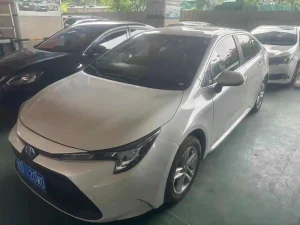Volkswagen's strong position on the Chinese clashed this with Hyundai who is lagging although both are in large part dependent on sedan, themselves backed by small cars for decades. Like Volkswagen in China during the 1980s, which became one of the market's first foreign players and built itself a commanding lead. As of 2023, Volkswagen has around a market share of up to 15% in China and is one the best selling car brands there. Volkswagen was one of the first to come and this early arrival meant that it established crucial joint ventures with Chinese firms SAIC and FAW, resulting in millions of vehicles being tailored specifically for local tastes.
This comes down to localization: Volkswagen would not be as successful in China were it mainly importing cars from elsewhere, then. In China Tesla has a specific model lineup with extended wheelbase of the vehicles in addition to their larger-interior and premium features, which are more appropriate for this market that likes sedans (the spacious kind) on top. In the case of cars such as, say, the Volkswagen Lavida that's only sold in China and has been one of its best-sellers since 2008 with sales regularly above half a million annually. For Volkswagen, to focus on what local consumers want is an approach that works well in such a fierce market.
Volkswagen's blend of affordability and aspirational quality also helps the brand. Vehicle pricing starts at 80,000 RMB for entry-level models like the Volkswagen Santana eso a wide range of consumers are able to buy the car. That affordable price and reputation of reliability have helped make Volkswagen a popular choice for first-time car buyers as well as families in China. First, more than 60% of Chinese car owners in a survey conducted this year said they associate Volkswagen with durability and value for money, demonstrating that the reputation endures.
There is also Volkswagen's large dealership and service network to consider. Volkswagen operates over 2000 dealers in China, to optimise customer sales and service experience. The extensive battery-swapping network helps maintain a high customer retention rate as ease of servicing and availability of spares are pivotal to the overall ownership experience. The company has also worked on increasing its customer service, which resulted in a 25% improvement since around five years.

Another reason for this brand’s popularity over so many years is the brands readiness and ability to adapt changing trends. As the Chinese market transitions more and more to electric vehicles (EVs) Volkswagen has been quick to launch its own ID. to its big-selling Master series vans and part of a plan to offers greener transport options in thezeros. The ID. In 2022, sales in China accounted for no less than 30% of the model's global volume.offender No.4 — with a strong presence again by an electric SUV. You provide your brand to the government with all of its initiatives towards NEVs, and you just sit there conveniently in place. §
In addition, the strategic marketing and strong brand identity of Volkswagen play a large part in its success. The brand is perceived as a low risk, high status alternative for consumers mass (middleclass and upwards). They are then simply introduced as luxury cars with a healthy dose of heritage, quality and innovation marketing to appeal specifically to the Chinese customers for whom these three themes resonate most. That concept has made Volkswagen a recognized brand in China — it's commonly known as "Da Zhong," which translates to "for the people."
In the company of Volkswagen vehicles in China, it will continue to assert as an absolute leader by property with a focus on local demand and flexibility before new market trends.